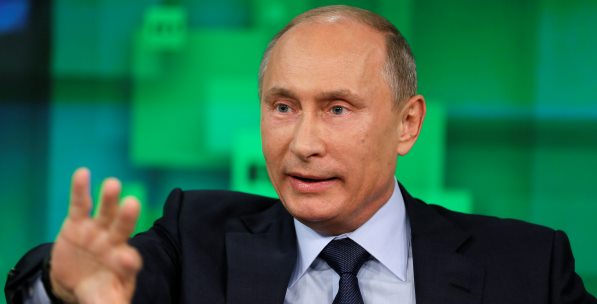New developments have taken place in the last few days since the first reports last week on the Russian military buildup in Syria. A few days after Russian President Vladimir Putin called the allegations premature, Russian Foreign Minister Sergey Lavrov this week confirmed that the Russian humanitarian flights to Syria also carry military equipment. He told reporters: "Russian planes are sending to Syria both military equipment in accordance with current contracts and humanitarian aid." This was a significant development given that despite previous denials, under the pressure of the European foreign ministries and the U.S. State Department, Lavrov admitted that Russia is still providing military equipment for the Syrian government.
The Russian Foreign Ministry's statements regarding Russian troops in Syria were more ambiguous compared to Lavrov's. In response to questions about Russian troops in Syria, the Russian Foreign Ministry confirmed that Russian military experts are present in Syria. However, in the same statement the Foreign Ministry spokeswoman mentioned that the experts are in Syria because of the Russian arms deliveries to Syria and these arms are meant to be used in the fight against terrorism. Another statement from Russia also underlined the fight against terrorism and stressed that "the only force capable of resisting [the Islamic State of Iraq and al-Sham, or ISIS] is the Syrian armed forces."
Although Russia still did not confirm the presence of combat troops in Syria, some photos on social media and reports from news agencies demonstrate that there is an increasing Russian troop presence there. First Reuters reported that Russian forces started to join military operations in support of Syrian government troops, and later in a story on The Daily Beast a U.S. intelligence official confirmed the report and said Russia started to directly intervene in the conflict in Syria. Social media sources identified the Russian units that arrived in Syria.
So now that the suspicions of the last week are more or less confirmed, there is still a major question about the Russian government's motivations. Counterterrorism seems to be the dominant message that Russian Foreign Ministry officials tried to use to describe Russian military activity in Syria. It is true that Russia has been mentioning this issue for a long time because of the involvement of some Russian nationals with ISIS. However, both the international community and the U.S. are not that convinced by this argument.
The fact that Russian assistance came after reports of the weakening Syrian army demonstrates that Russia will not let Syrian President Bashar Assad get weaker. It also shows that the main goal may not be only fighting against ISIS, but also balancing the strength of opposition forces. In that case, its soldiers may engage in a clash with opposition forces as well.
The only problem for Russia in this case will not only be the opposition forces. In the last few days the U.S. administration has pressured the countries in the region not to give permission for Russian cargo planes to use their airspaces, which the Russian government has criticized. Furthermore, the U.S. administration is also concerned that such a counterterrorism effort against ISIS by Russia will complicate the anti-ISIS coalition and its efforts. In addition, likely accidents between Russian forces and coalition forces would be more likely in this scenario.
A major danger that Russian involvement can create in Syria is the intensification of the civil war, which would dramatically increase the number of casualties and would generate another major wave of refugees from the country. This would turn the country into a black spot for international security. Russia is familiar with these forms of black spots as the Soviet invasion of Afghanistan and its aftermath generated one of the most dangerous black spots in the region. The post invasion involvement and its support of a pro-Soviet government only fueled the conflict in the country and







